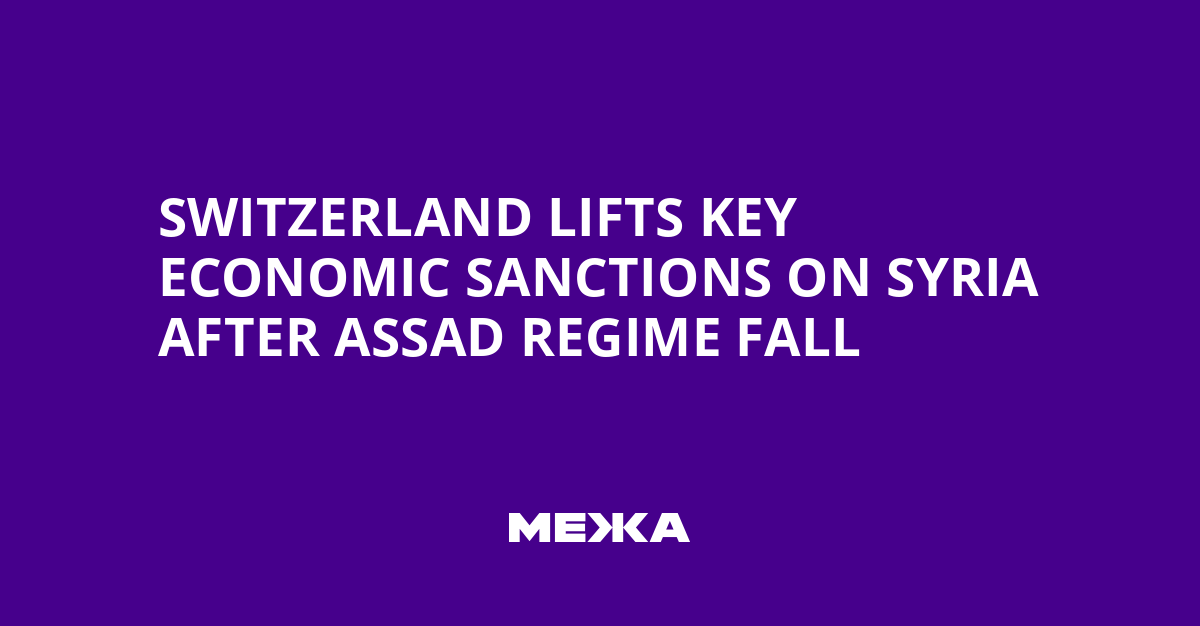On June 20, Switzerland announced the lifting of a number of economic sanctions imposed on Syria, including restrictions on the country’s Central Bank. This information was published on the official website of the Swiss government.
The Federal Council decided to remove restrictions on providing certain financial services, trading precious metals, and exporting luxury goods. This decision follows a previous easing of sanctions that took place on March 7, 2025.
Additionally, 24 organizations were removed from the sanctions list, including the Central Bank of Syria. Its assets were unfrozen, as the bank plays a crucial role in the country’s economic recovery.
However, targeted sanctions against individuals and organizations associated with the former Bashar al-Assad government remain in place. Restrictions on the export of weapons and goods that could be used for repression and surveillance also continue.
Switzerland first imposed sanctions on Syria on May 18, 2011, joining measures introduced by the European Union on May 9 of the same year.
Circumstances of the Sanctions Lift
On January 6, 2025, the United States lifted sanctions following the fall of Bashar al-Assad’s regime, allowing temporary financial transactions with the new Syrian government.
On February 24, the European Union decided to suspend restrictive measures on key sectors of the Syrian economy.
On May 28, the EU Council adopted legal acts that lifted all economic restrictions on Syria, except those related to security issues. This decision formalized the political resolution announced on May 20, 2025, aimed at supporting the Syrian people in rebuilding an inclusive, pluralistic, and peaceful country.
The Fall of Bashar al-Assad’s Regime
On December 8, 2024, Syrian rebels declared the liberation of Damascus, and President Bashar al-Assad left the capital. According to Reuters and Flightradar24, Assad’s plane may have crashed, but this information was not confirmed.
Syrian Prime Minister Muhammad Ghazi al-Jalali expressed readiness to cooperate with any leadership chosen by the people and to take steps toward a transfer of power.
The Russian Ministry of Foreign Affairs reported that Bashar al-Assad decided to hand over power peacefully and left the country. Russian media stated that Assad was granted asylum in Russia by decision of Vladimir Putin.
On December 10, 2024, Mohammed al-Bashira, a close associate of “Hayat Tahrir al-Sham” leader Abu Muhammad al-Julani, was appointed interim prime minister of the Syrian transitional government until March 1, 2025.
Abu Muhammad al-Julani, also known as Ahmed al-Sharaa, was the leader of the Islamist group “Hayat Tahrir al-Sham,” which opposed Assad’s regime. On January 29, 2025, he was declared president of Syria during the transitional period.
